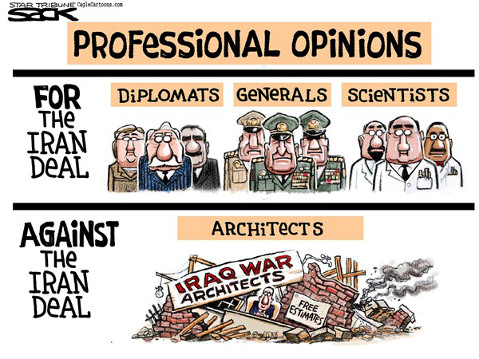Agreement Eliminates Iran’s Nuclear Weapon Ability
Diplomatic Joint Action Adds Transparency to Nuclear Activities

This week the House of Representatives is expected to vote on an international nuclear agreement with Iran, formally known as the Joint Comprehensive Plan of Action (JCPOA). As many of you know, this deal has ignited a passionate debate in our community and across the country; it is undoubtedly one of the most pivotal foreign policy decisions our country currently faces.
After careful consideration, I will vote to support the JCPOA because I believe it is the best way forward to prevent Iran from obtaining a nuclear weapon and advance the national security interests of the United States and our allies.
Like my vote against the Iraq War, this decision is one of the most important foreign policy votes I will take during my time in Congress, and I did not come to this decision lightly. Prior to announcing my support in early August, I reviewed the agreement and its classified documents, participated in classified briefings with Secretaries John Kerry, Ernest Moniz, and Jack Lew, sought the insights of experts on all sides, and listened to input from my constituents here on the Central Coast.
The intent of both these negotiations and sanctions against Iran has always been to diplomatically cut off Iran’s pathways to a nuclear weapon and to verifiably increase transparency of their nuclear activities. It is clear to me, as well as numerous nuclear, diplomatic, and national security experts around the globe, that the JCPOA achieves these critical goals.
The JCPOA will ensure that Iran will not have the materials or capability to build a nuclear weapon as long as the agreement is in place, and if Iran decides to pursue a weapon, the deal would extend the time it would take Iran to build a nuclear bomb from two or three months, as it currently stands, to at least a year. And if Iran violates the agreement in any way, unprecedented and permanent international inspections will ensure that we know about it and can automatically reinstate international sanctions.
In contrast, defeating this deal would allow Iran to resume its nuclear program with no restrictions or oversight, increasing the likelihood of military conflict and a regional nuclear weapons race — precisely the scenario sanctions were designed to prevent. Another costly war in the Middle East would put American lives at risk and undermine the security of our nation and our allies, including Israel.
While the risks of a nuclear armed Iran are unquestionably dire, there is simply no scenario in which these risks are reduced by rejecting this deal. Those who are urging the defeat of this deal have a responsibility to propose a viable alternative; yet no such alternative has been put forward.
Finally, there are no decisions I take more seriously than those that involve potentially sending American troops into harm’s way. This is undeniably one of those decisions. Under the JCPOA, every option is — and will remain — on the table, including military force. But as a member of Congress I have a solemn obligation to ensure that every diplomatic avenue is exhausted before military action is taken. That is why I opposed authorizing the Iraq War and why I support the JCPOA.
This is a pivotal moment. We must certainly remain vigilant in the years and decades to come to ensure that this deal is strictly enforced and that Iran upholds its end of the bargain. But the terms of this agreement are strong, verifiable, and long-lasting.
The JCPOA is certainly not perfect, but perfect is not – and has never been – an option. This agreement is the best path available and it has my full support.



